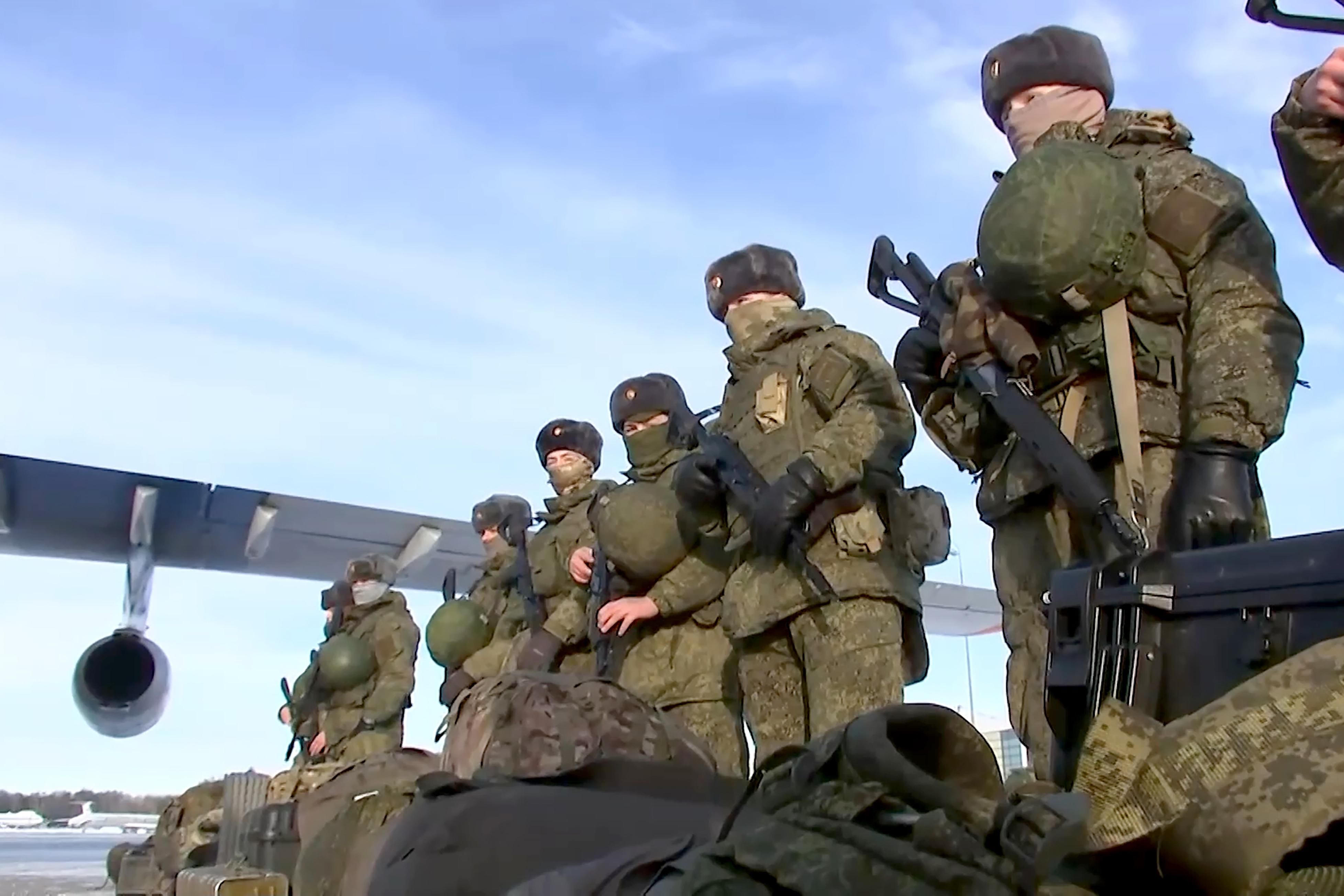What We’re Watching: Russians in another Stan, Djokovic drama, Mali sanctions, Europe vs anti-vaxxers
Russia in Kazakhstan. Anti-government clashes in Kazakhstan have gotten increasingly violent, with the death toll now reaching 164 after President Kassym-Jomart Tokayev issued a controversial “shoot without warning” order on Friday. What started as a demonstration against a fuel price hike has since turned into a movement protesting government corruption and authoritarianism — with regional implications. Enter Russia, which responded to the pro-Russia Tokayev’s request for help with about 2,500 “peacekeeping” troops and future deployments being planned under the aegis of the Collective Security Treaty Organization, the former Soviet Union’s version of NATO. This comes as Moscow has recently amassed 100,000 troops on the border with Ukraine. The Russians will on Monday start talks with NATO and the US about the ongoing situation with Ukraine, but also discuss enhancing security plans with Kazakhstan, whose northern territory is claimed by Moscow. Russia has been clear about what it wants in Ukraine — for NATO to stop expanding further eastward into the former Soviet states. But what does Vladimir Putin want exactly in Kazakhstan, one of the region’s most energy-rich countries?
No-vac Djokovic’s next moves. It wasn’t a political case at first, but it’s become one, fast. Novak Djokovic, the world’s top-seeded men’s tennis player, came to Oz with ambitions to win his 21st grand slam title. But after being denied entry for being unvaccinated and questions about his medical exemption from previously getting COVID, Djokovic took the Australian government to court, challenging deportation. A judge on Monday reinstated his visa, but again the case isn’t going to be open and shut — or game, set and match. The federal government can still cancel the visa for a second time, and in that case Nole will be banned from Australia, and the Australian Open, for three years. Meanwhile, Djokovic, a vaccine skeptic, is set to leave the rundown hotel where he was staying alongside many asylum-seekers also awaiting their future. Still, the question remains: is arguably tennis’ GOAT a victim of politicization, or just entitled? The Australian government’s final decision must be announced by Tuesday if the Serbian star is to play in Melbourne.
ECOWAS vs Mali. In response to Mali delaying its planned election next month, the 15-member Economic Community of West African States has decided to close all borders with Mali and impose tough economic sanctions on non-essential financial transactions, and Malian state assets in West African banks. Mali has been run by a transitional civilian-military government — with the generals calling most of the shots — since an August 2020 coup, followed by a de-facto second power grab nine months later. ECOWAS met the first with a border closure and sanctions package, which it lifted when the junta agreed to share power with civilians and hold elections in early 2022. However, the bloc didn't act after the second coup, and was caught off-guard by the postponement. Mali’s generals, meanwhile, say they prioritize ensuring a peaceful election over a speedy one. No way, say Mali's neighbors, who want a vote ASAP because West Africa needs more stable governments, in part to fight jihadists that have taken control of vast swaths of the conflict-ridden Sahel region.
Political omicron in Europe. As the omicron variant continues to drive cases and hospitalizations up globally, new pandemic restrictions — including vaccine mandates — are stoking fresh political fights in Europe. In France, President Emmanuel Macron is facing strong backlash over his recent comments against anti-vaxxers (and refusal to walk them back). Tens of thousands of people took to the streets of Paris on Saturday to protest against Macron’s plans to ban the unvaccinated from bars and restaurants. Macron may have science on his side, but he'll have to tread carefully because the French presidential election is only three months away, and the incumbent needs to maintain his lead over conservative challenger Valerie Pécresse. Meanwhile, the Czech Republic saw a similar mass rally in Prague to decry a vaccine mandate for everyone over 60 due to take effect in March. What's interesting here is that the new Czech government was against the plan when its parties were in the opposition, but now says it might keep the mandate due to omicron. Flip-flopping on such a polarizing issue is not a good start for a shaky coalition in a country with one of the EU's lowest rates of trust in government.